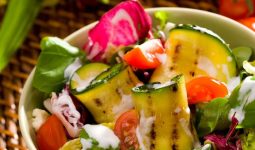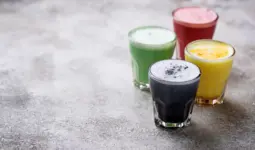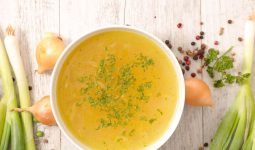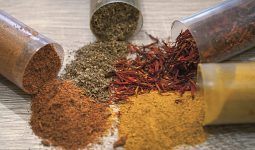Few things can make me happier than vanilla sugar sprinkled on freshly baked scones. It’s so much better than the artificial stuff!
If you have any food allergies or want to try something new, there are plenty of options for making sugar alternatives at home.
In this article, I’ll also list five great substitutes for regular vanilla sugar and give you suggestions on how to use them.
Read on to find out more about substitutes for vanilla sugar!
1. Vanilla Extract
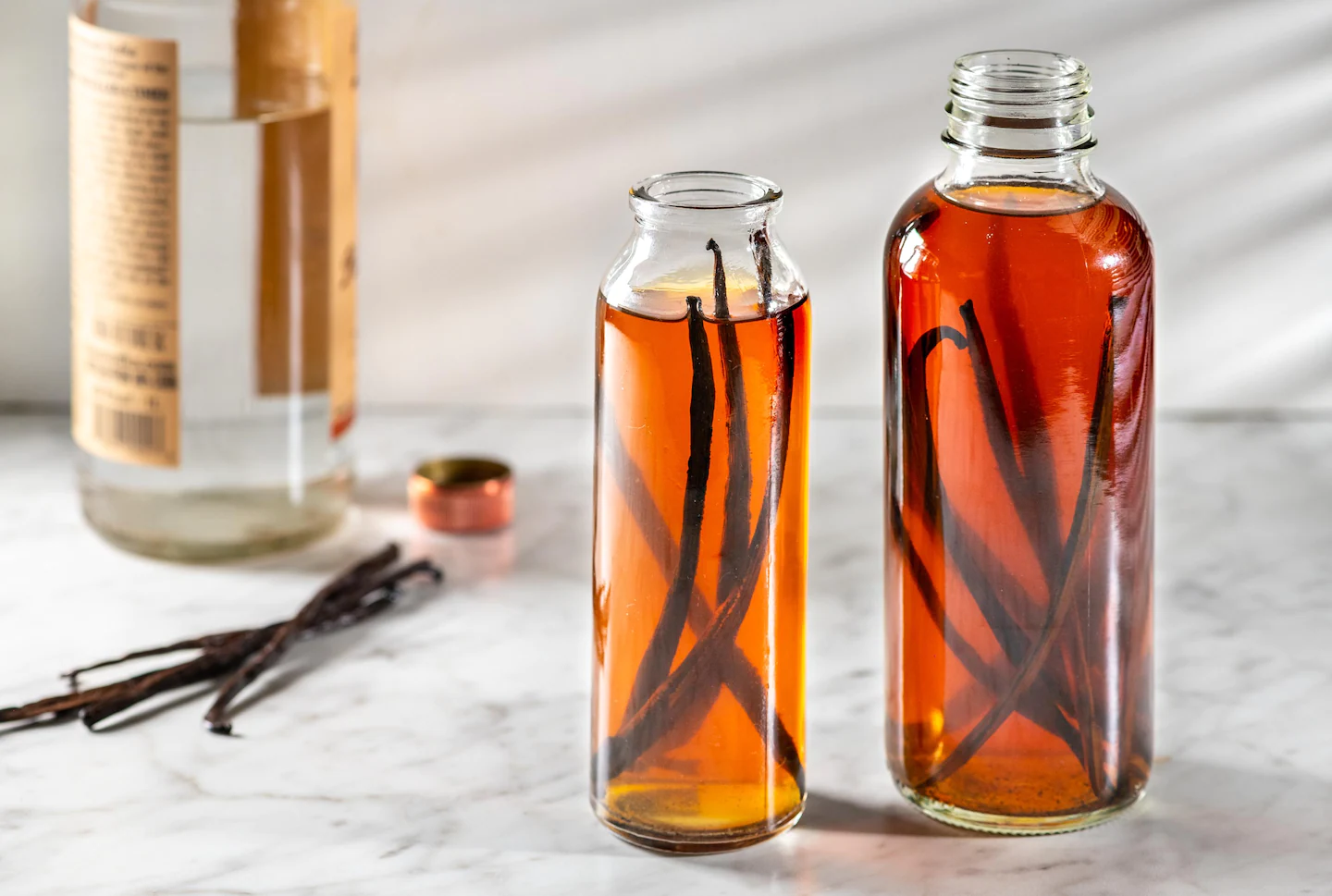
Although a little on the pricier side. A natural vanilla extract is a delicious and easy way to add flavor to your baked goods.
If you don’t have it, consider adding 1-2 tsp of ground vanilla beans per 1/4 cup sugar.
Although this may be a bit more expensive upfront, it will last you longer than any other option on our list. Want something even cheaper and equally delicious?
In your recipe, you can substitute 2 tbsp of cocoa powder or coffee granules for every 1 tbsp of vanilla extract.
Also, Cinnamon Sugar: No matter how hard we try, resisting anything sprinkled with cinnamon-sugar goodness seems impossible.
2. Regular Sugar
Though we overlook it, sugar is an essential ingredient in our food. Without it, our baked goods wouldn’t rise properly, and our desserts would be bland. But too much of a good thing can cause health problems.
Also, many people have turned to artificial sweeteners like aspartame and saccharin. These have been known to cause headaches, however.
Luckily, there are also many natural ways to help reduce your intake of regular table sugar while keeping things delicious.
Here are five alternatives to vanilla sugar that you can use in all recipes. From pancakes to bread, you can get more out of your baking while staying healthy.
3. Honey
This sweetener is produced by bees using nectar from flowers. While honey has some calories, it’s far less than refined sugars.
Instead of replacing all your sugar with honey, it is best to add a little sweetness here and there.
You can also use it as a substitute for vanilla sugar in baking or drizzle it over yogurt.
However, as with most natural sweeteners, too much honey can cause tooth decay and other oral problems—in large amounts. Other natural sugars you could try include agave and maple syrup.
4. Icing Sugar
This is one of the substitutes for vanilla sugar. Also known as confectioner’s sugar, icing sugar is granulated white sugar ground into a powder mixed with cornstarch.
This helps prevent clumping and gives it a more delicate texture than regular granulated white sugar. It’s similar to common powdered or confectioner’s (10x) sucrose.
However, instead of just 50% being sucrose (and 50% being glucose), it’s 100% sucrose (no glucose).
Icing or powdered sugars are used in frostings and icings because they form a smooth paste when added to butter or milk.
5. Sorghum Syrup
This dark, thick liquid comes from various cereal grains and is an excellent source of nutrients.
It’s also a fantastic alternative to artificial sweeteners such as Equal or Splenda (which often contain corn syrup solids).
Best of all, Sorghum syrup has a sweet taste but only ten calories per teaspoon. That’s just one calorie more than table sugar, which contains no nutrients.
If you like things a little sweeter, try honey – but remember that honey has 25% fewer calories than sugar and isn’t sticky.
If you need your sweetener to have a fruity flavor, go with agave nectar.
Also, it’s much lower in fructose (5-10%) than honey or maple syrup. But date sugar might be the perfect choice for a darker color and flavor.
It’s rich in iron and magnesium with trace amounts of copper, zinc, manganese, and potassium.
Dates can also help relieve constipation, so this might be the perfect option if your doctor prescribes bowel-modifying medications like lactulose or mineral oil. The last option on our list is coconut palm sugar.
6. Coconut Sugar
Natural coconut sugar is rich in nutrients and has a low glycemic index, making it ideal for people with diabetes.
Coconut sugar is also easy to digest because it is minimally processed as a substitute for vanilla sugar. And don’t worry – no actual coconuts are used to produce coconut sugar.
However, buying coconut sugar requires one teaspoon of pure cane juice in every tablespoon. This makes it incredibly versatile as a substitute for regular white or brown sugars.
Just be aware that natural sugars have more calories than refined white and brown sugars.
Also, one tablespoon of coconut sugar has 58 calories, while one tablespoon of regular granulated sugar only has 45 calories.
7. Brown Sugar
While brown sugar isn’t quite as sweet as white sugar, it still has around 16 grams of carbs per cup.
This can get you into trouble when baking, so use a small amount and ensure you like the flavor.
Brown sugar is also ideal for flavoring meats because it is less overwhelming than white sugar and retains some moisture.
So your sauce will stick better to your flesh, a substitute for vanilla sugar.
However, if you use it in a non-banking application, your best bet is to experiment with brown sugar. In baking applications, try confectioners or muscovado sugars instead.
8. Palm Sugar
Also known as coconut sugar, palm sugar is made from palm trees and is often sold in solid blocks.
Like brown or white cane sugars, palm syrup tastes like honey and can be used in all your favorite desserts.
It’s also perfect for coffee or tea and pairs well with fruit, chocolate, lemon juice, and baking spices.
If possible, look for organic varieties to avoid genetically modified ingredients.
9. Maple Syrup
This is also a substitute for vanilla sugar. When craving a bit of sweetness, maple syrup can be an excellent substitute for white granulated sugar.
However, it may have more calories than white table sugar (180 per tablespoon).
But by choosing pure maple syrup, you can get a good dose of nutrients like iron and zinc.
Plus, research shows that enjoying foods high in iron can aid in weight loss by helping boost metabolism.
Hence, your body requires iron to create red blood cells. That helps deliver oxygen to your muscles and other organs—essential for staying energized and performing at your best.
Conclusion
You may be able to find 1001 substitute solutions to all of life’s issues. But sometimes, it is just lovely to go back to basics.
The substitute for vanilla sugar is a subtle luxury that can make any dish memorable and easy.
Whether you add it to coffee or whipped cream, it has only two ingredients and takes less than five minutes to prepare.
Vanilla beans aren’t hard to find, so grab a few at your local market and make some magic with them today!





